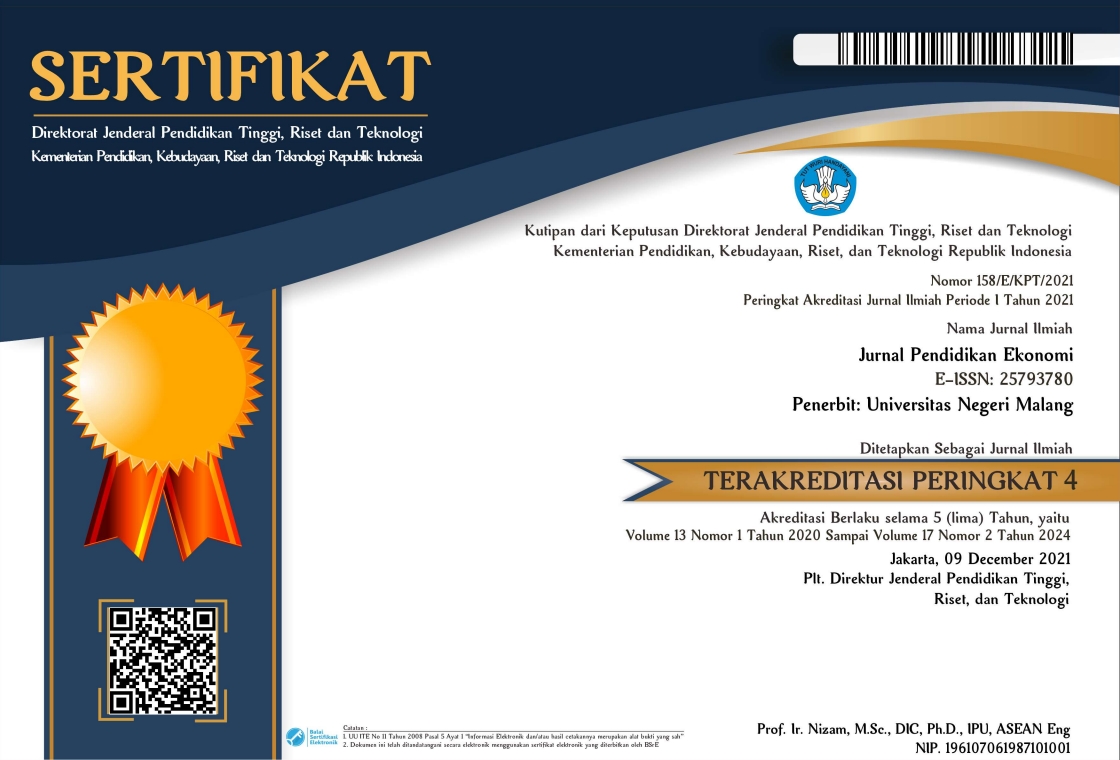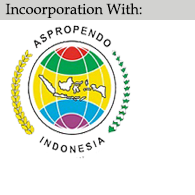Ecosystem Model on Adaptive MOOC in Higher Education
Abstract
This research aims to develop an adaptive MOOC ecosystem in universities. This study involved development research using the 4-D model, which consists of defining, designing, developing, and disseminating. The results indicate that in developing a MOOC ecosystem, it is necessary to conduct an in-depth analysis of users to find out what structures are needed. The context of MOOCs by companies is undoubtedly different from that of universities. As an educational institution, its stakeholders involve university leaders and researchers from lecturers. In the initial design, it is necessary to test user characteristics so that the MOOC system can make decisions on learning recommendations. We involved metacognitive testing and categorize so that users can learn to the fullest. In its application, validity tests were performed on experts to assess the product from development and on users. The test results showed excellent results. This ecosystem has also been disseminated to users and received a very good response. Moreover, several universities in Indonesia have the status of PTN-BH, which demands financial independence, so MOOC can be one of the breakthroughs to acquire income generation.
Keywords: adaptive MOOC, MOOC ecosystem, higher education
Full Text:
PDFReferences
Albelbisi, N. A. (2019). The role of quality factors in supporting self-regulated learning (SRL) skills in MOOC environment. Education and Information Technologies, 24(2), 1681-1698. https://doi.org/10.1007/s10639-018-09855-2
Albelbisi, N. A., Al-Adwan, A. S., & Habibi, A. (2021). Self-regulated learning and satisfaction: A key determinants of MOOC success. Education and Information Technologies, 26(3), 3459-3481. https://doi.org/10.1007/s10639-020-10404-z
Alwi, A. C., Dwiningrum, S. I., Suyanto, Sunarto, S., & Surono. (2021). MOOC model to support freedom to learn program. Jurnal Kependidikan, 5(1), 111–122. http://dx.doi.org/10.21831/jk.v5i1.35316
Bozkurt, A., Akgün-Özbek, E., & Zawacki-Richter, O. (2017). Trends and patterns in massive open online courses: Review and content analysis of research on MOOCs (2008-2015). International Review of Research in Open and Distributed Learning, 18(5), 118-147.
Campos, R., Dos Santos, R. P., & Oliveira, J. (2018). Web-based recommendation system architecture for knowledge reuse in MOOCS ecosystems. Proceedings - 2018 IEEE 19th International Conference on Information Reuse and Integration for Data Science, IRI 2018, October, 193–200. https://doi.org/10.1109/IRI.2018.00036
Campos, R., Santos, R., & Oliveira, J. (2021). Recommendation System for Knowledge Acquisition in MOOCs Ecosystems. November, 93–108. https://doi.org/10.5753/sbsi.2020.13132
Campos, R., Santos, R. P., & Oliveira, J. (2018). Recommendation Systems for Knowledge Reuse Management in MOOCs Ecosystems. Anais Estendidos - XIV Simpósio Brasileiro de Sistemas de Informação, October, 146–148.
Corno, L. (1986). The metacognitive control components of self-regulated learning. Contemporary Educational Psychology, 11(4), 333-346.
Davis, D., Chen, G., Hauff, C., & Houben, G. J. (2018). Activating learning at scale: A review of innovations in online learning strategies. Computers and Education, 125, 327–344. https://doi.org/10.1016/j.compedu.2018.05.019
Kennedy, E., & Laurillard, D. (2019). The potential of MOOCs for large-scale teacher professional development in contexts of mass displacement. London Review of Education, 17 (2), 141-158
Kominfo. (2014). Pengguna Internet Indonesia Nomor Enam Dunia. In https://kominfo.go.id/content/detail/4286/pengguna-internet-indonesia-nomor-enam-dunia/0/sorotan_media.
Laurillard, D. (2016). The educational problem that MOOCs could solve: Professional development for teachers of disadvantaged students. Research in Learning Technology, 24, 29369, https://doi.org/10.3402/rlt.v24.29369
Moreno-Marcos, P. M., Muñoz-Merino, P. J., Maldonado-Mahauad, J., Pérez-Sanagustín, M., Alario-Hoyos, C., & Delgado Kloos, C. (2020). Temporal analysis for dropout prediction using self-regulated learning strategies in self-paced MOOCs. Computers and Education, 145, 103728. https://doi.org/10.1016/j.compedu.2019.103728
Pahlevi, R. (2022). Pengguna Internet di Dunia Capai 4,95 Miliar Orang Per Januari 2022. In https://databoks.katadata.co.id/datapublish/2022/02/07/pengguna-internet-di-dunia-capai-495-miliar-orang-per-januari-2022.
Rhoads, R. A. (2015). MOOCs, High Technology, and Higher Learning (W. G. T. and L. W. Perna (ed.)). Johns Hopkins University Press.
Sugiyono. (2020). Metode penelitian kuantitatif, kualitatif dan kombinasi (Mixed Method) (edisi 2). Penerbit Alfabeta.
Thiagarajan., & Sivasailam. (1974). Instructional develoment for traning teacher of exeptional children: A Sourcebook (p. 194).
Trehan, S., Sanzgiri, J., Li, C., Wang, R., & Joshi, R. (2017). Critical discussions on the massive open online course (MOOC) in India and China. International Journal of Education and Development using ICT, 13(2), 141-165. https://files.eric.ed.gov/fulltext/EJ1153318.pdf
Zawacki-Richter, O., Bozkurt, A., Alturki, U., & Aldraiweesh, A. (2018). What research says about MOOCs–An explorative content analysis. The International Review of Research in Open and Distributed Learning, 19(1),1–11.
DOI: http://dx.doi.org/10.17977/UM014v17i1p074
Refbacks
- There are currently no refbacks.

Jurnal Penddidikan Ekonomi is licensed under a Creative Commons Attribution-NonCommercial-ShareAlike 4.0 International License





